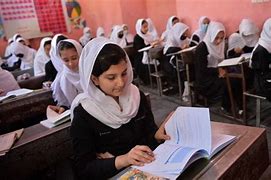
A dark shadow follows the hundreds of thousands of residents who call the West Kabul neighbourhood of Dasht-e Barchi home.
Last Friday, on September 30, Barchi made international headlines after a suicide bomber detonated his explosives at a university testing centre, killing at least 53 students – mostly young women – and wounding over 100 more.
It was only the latest devastation to hit the predominantly Shia neighbourhood, which has seen a string of brazen attacks in recent years, targeting everything from a wrestling gym, to an ID card distribution centre, to mosques, a maternity ward, and a girls’ school.
Most of these attacks have been claimed by forces with allegiance to the so-called Islamic State group, which often cites the area’s Shia population as a justification for striking entirely civilian targets. The majority of residents here are also from the Hazara ethnicity, a group who in the 1990s were subject to massacres and abuses by former warlords and the Taliban.
The victims were young women like Anisa Mohammad Jawad. The 21-year-old, who had won several prizes for her academic and religious pursuits, hoped to study medicine.
“She wanted to be a doctor, but now she’s under the dirt. My brilliant daughter was torn to pieces,” her still-shocked mother said between wails and tears.
In the days after the attack, neighbours of two victims hung a banner near their homes that read: “Dear classmates of Marzia and Khojar! Please finish the unfinished dreams of Marzia and Khojar.”
Bastan Ali says Marzia, his 19-year-old daughter – who hoped to study engineering – knew well of the dangers when she enrolled at Kaj a year ago, but she accepted them. “She always said, ‘Even if I am killed, let it be in the name of education.’”
Given Afghanistan’s long history of dispossession and discrimination against Hazaras, activists have framed the last half decade of attacks – and the inadequate response by both the former Western-backed Islamic Republic and the now-back-in-power Taliban government – as a genocide against a minority that also face abuses in neighbouring Pakistan and Iran.
Led by women academics, protests have spread across Afghanistan in recent days, calling for an end to attacks on Hazaras as well as the return of education for teenage girls, who are currently unable to attend high school in the majority of the nation. In the eastern province of Nangarhar, women expressed solidarity with the Hazara people and called for “revenge for the blood of their countrymen” killed on 30 September.
On social media, the hashtag #stophazaragenocide has once again gone viral.
In spite of promises by the Taliban government to return the country to stability, activists and Barchi residents say the latest attacks show that just like the republic it ousted, the Islamic Emirate is failing to protect vulnerable minorities.
On Saturday, the day after the attack, the Taliban’s security forces were deployed in several parts of Barchi, just as those of the Republic had been after previous blasts. But residents say day-after searches represent little more than security theatre.
“Other than God, who will hear our prayers, our cries,” said Gholam Sakhi, whose brother-in-law died in the latest attack.
Anisa’s father, Mohammad Jawad, earns his income by selling fruit and vegetables on one of Barchi’s many unpaved, craggy sideroads. He has used this money to scrounge together the 800 afghani ($9) monthly fee to put each of his three older children through university entrance exam preparation courses. “I sold whatever I could from a cart so my daughter could reach her dreams,” he said.
Like many of their neighbours, Jawad and his wife are Hazaras. Most of the older generation here moved to Kabul from some of the least-developed provinces of the country, including Maidan Wardak, Ghor, Daikondi, Uruzgan and Zabul. Robbed of the chance of a formal education by decades of war, poverty, and discrimination, these parents hoped to give their children better opportunities.
Now, instead of reaching her dream, Anisa is buried on a hillside that has become the final resting spot for hundreds of victims of similarly heinous attacks. Many more sit behind closed doors across the neighbourhood, recovering from mental trauma and physical injuries.
By 10am on Friday, Jawad and his older son, Abdul Raouf, had visited half a dozen hospitals searching for Anisa. At the final hospital, Jawad said he came face-to-face with the bitter reality of life in Barchi in recent years.
“I stood there searching through 20 dead bodies and 27 injured youths looking desperately for my daughter, who I didn’t even allow to do housework so she could focus on her studies,” he said.
“This country has seen so much violence, but we want to fight with the pen.”
Standing on the dirt road leading to their home, Abdul told The New Humanitarian that, if nothing else, he wants his sister’s death to be remembered as proof of his people’s drive for education.
“This country has seen so much violence, but we want to fight with the pen,” the 26-year-old pharmacy student said. “We challenge anyone, but through education, not another gun. If you want to face us, come at us with words and knowledge not bombs and bullets.”
As the family mourns the loss of Anisa, her father said the death was emblematic of the dual tragedies of violence and poverty that have affected all Afghans over the last 40 years of war.
“A death like that, it’s an affliction. But poverty is also a plague that you can’t outrun,” said Jawad. “I wanted better for my daughter. That’s why I worked so hard.”
- The New Humanitarian report











